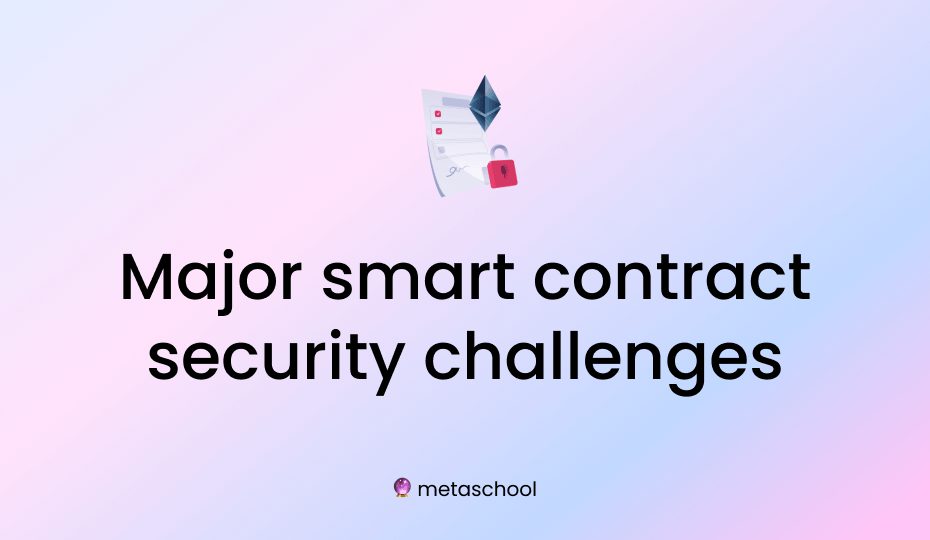Smart Contracts: A Game-Changer For Startup Agreements

The world of startups is no stranger to innovation. Entrepreneurs are continually seeking ways to disrupt traditional business models and streamline their operations. In this quest for efficiency and transparency, a powerful tool has emerged: smart contracts. These self-executing, code-based agreements are reshaping the way startups handle agreements, from funding and investor relations to supplier contracts and beyond. In this in-depth exploration, we’ll delve into the concept of smart contracts, how they work, and the profound impact they’re having on the startup ecosystem.
The Genesis of Smart Contracts
Smart contracts were first introduced by computer scientist and cryptographer Nick Szabo in the early 1990s. Szabo envisioned a self-executing contract with the terms of the agreement directly embedded in code. These contracts would eliminate the need for intermediaries, such as lawyers or banks, reducing the potential for disputes and speeding up the execution of agreements.
However, it wasn’t until the advent of blockchain technology, notably with the introduction of Ethereum in 2015, that smart contracts became practical and gained widespread adoption. Blockchain technology provided the ideal platform for the execution of these contracts, as it ensures security, transparency, and immutability.

How Smart Contracts Work
Smart contracts operate on an “if-then” basis. They are programmed to automatically execute predefined actions when specific conditions are met. Here’s a simplified example of how they work:
- Agreement Initialization: Two parties, let’s say a startup and an investor, agree to terms. These terms are converted into code and written into a smart contract.
- Condition Fulfillment: The smart contract contains specific conditions, such as the release of funds when the startup reaches a certain milestone. When these conditions are met and verified by the blockchain, the contract self-executes.
- Automation: Once the conditions are satisfied, the smart contract automatically carries out the actions defined in the code. In our example, it releases the agreed-upon funds to the startup.
- Transparency: All contract actions are transparently recorded on the blockchain, ensuring an immutable and auditable history of the agreement.
Also, read – What Are the Methods for Automated Testing of Smart Contracts?
The Impact on Startups

Smart contracts have a profound impact on startups across various aspects of their operations. Let’s explore these transformative changes in detail:
1. Funding and Investor Relations
One of the most significant applications of smart contracts in the startup world is in fundraising. Through initial coin offerings (ICOs) or security token offerings (STOs), startups can issue tokens that represent equity or other forms of investment. These tokens are governed by smart contracts, which automate the distribution of dividends, voting rights, or other agreed-upon actions. Here’s how smart contracts benefit startups in funding:
- Automated Funding Rounds: Smart contracts can automate the distribution of tokens to investors once they have contributed to the funding round, streamlining the process.
- Efficient Dividends: Dividend distribution to token holders can be automated and transparent, ensuring timely payments and reducing administrative overhead.
- Enhanced Investor Trust: Smart contracts increase investor trust by providing transparency and confidence in the execution of the agreement’s terms.
2. Equity Management
Startups often grant equity to employees and investors, which involves intricate cap table management. Smart contracts simplify this process:
- Automated Equity Distribution: When employees or investors acquire tokens that represent equity, smart contracts can automatically update the cap table, reducing administrative burden.
- Vesting Schedules: Smart contracts can enforce vesting schedules, ensuring that equity is distributed according to predetermined conditions.
- Secondary Market Liquidity: Smart contracts enable the trading of equity tokens on secondary markets, providing investors with an exit option and startups with a more attractive financing mechanism.
3. Supplier and Partner Contracts
Startups engage with a multitude of suppliers, partners, and service providers. Smart contracts offer several advantages in this realm:
- Automated Payment Terms: Contracts with suppliers can be written into code to automatically execute payments upon the fulfillment of specific conditions, such as the delivery of goods.
- Supply Chain Transparency: Smart contracts on the blockchain can enhance transparency and traceability in the supply chain, reducing the risk of fraud or errors.
- Reduction in Disputes: Automated execution of contracts reduces the potential for disputes, as contract terms are clear, and their execution is verifiable.
4. Administrative Efficiency
Smart contracts streamline administrative tasks and reduce costs. For startups, this can mean significant savings and more time to focus on core business activities:
- Reduced Legal Costs: Smart contracts reduce the need for intermediaries, such as lawyers or notaries, minimizing legal fees associated with contract execution.
- Minimal Human Error: Automation reduces the risk of human error in contract execution, ensuring consistency and accuracy.
- Efficient Document Management: Contracts and their execution are securely stored on the blockchain, simplifying document management and retrieval.
5. Disintermediation
Smart contracts cut out intermediaries, such as banks, notaries, and lawyers. This disintermediation reduces transaction costs and minimizes the potential for errors or disputes. Startups can directly engage with parties, making agreements more efficient and cost-effective. Whether it’s fundraising, supply chain management, or partnership agreements, smart contracts enable startups to operate with greater autonomy and reduce dependence on third parties.
6. Global Reach
Smart contracts operate on blockchain networks, which are accessible globally. This enables startups to engage with a global network of investors, partners, and suppliers without the need for complex cross-border agreements. Smart contracts can handle multi-jurisdictional compliance seamlessly, expanding the reach of startups and their ability to operate on a global scale.
7. Real-Time Notifications
Smart contracts can provide real-time notifications and updates. For startups, this means they can receive immediate alerts when specific contract conditions are met. Whether it’s a payment, a delivery, or a milestone completion, these notifications can trigger follow-up actions, enhancing operational efficiency and responsiveness.
8. Auditable Records
Smart contracts record all transactions and their execution on the blockchain. This creates an auditable history of agreements. Startups benefit from this transparency, as it provides a clear and immutable record of all contract-related activities. In the event of disputes or the need for accountability, startups have a detailed history to refer to, reducing ambiguity and facilitating conflict resolution.
9. Enhanced Trust
Trust is a critical component of any business relationship. Smart contracts contribute to building trust in various ways. They provide transparency, ensuring that all parties can verify the execution of contract terms. Additionally, the self-executing nature of these contracts means that there’s no reliance on the willingness or ability of one party to fulfill their obligations, further enhancing trust among stakeholders.
10. Improved Security
Blockchain technology, on which smart contracts operate, is known for its security features. Transactions and data stored on the blockchain are cryptographically secured, making it exceedingly difficult for unauthorized access or tampering. This high level of security reduces the risk of fraud, breaches, and unauthorized alterations of agreements, which can be particularly beneficial for startups aiming to protect their interests.
11. Sustainability and Cost Reduction
Startups often operate with limited resources and are conscious of costs. Smart contracts contribute to sustainability and cost reduction. The reduction of paper-based contracts and the elimination of the need for physical signatures are not only environmentally friendly but also cost-effective. Additionally, the reduction of human error and the need for intermediaries can lead to significant cost savings over time.
Houston startup uses blockchain to make smart contracts, automate payments | Data Gumbo has emerged as a leader in the new industrial blockchain category. More than….. #Startup h #startuphttps://t.co/g3mUNMUPuX
— ASH® (@ThatisashOme) January 22, 2022
Challenges and Considerations

While smart contracts offer significant benefits, they also come with challenges and considerations:
- Complexity: Writing smart contracts requires a high level of technical expertise, which can be a barrier for startups with limited resources.
- Security Concerns: Smart contracts are not immune to vulnerabilities and bugs. Ensuring code security is paramount to prevent exploitation.
- Regulatory Compliance: Startups must navigate a complex regulatory landscape as governments grapple with the legality of smart contracts and blockchain technology.
- Oracles: Smart contracts often require external data sources (oracles) to verify conditions. The reliability of oracles is crucial for contract execution.
Conclusion
Smart contracts have emerged as a game-changer for startup agreements, revolutionizing how funding, equity management, and contract execution are handled. As the technology matures and regulatory clarity improves, the impact of smart contracts on startups is poised to grow. These self-executing agreements represent a leap toward a more efficient, transparent, and cost-effective way of doing business, offering startups a competitive edge in an ever-evolving landscape. As more entrepreneurs and businesses adopt smart contracts, the startup ecosystem is experiencing a transformative shift toward automation and trust in agreements, reshaping the way deals are made and executed.




























































